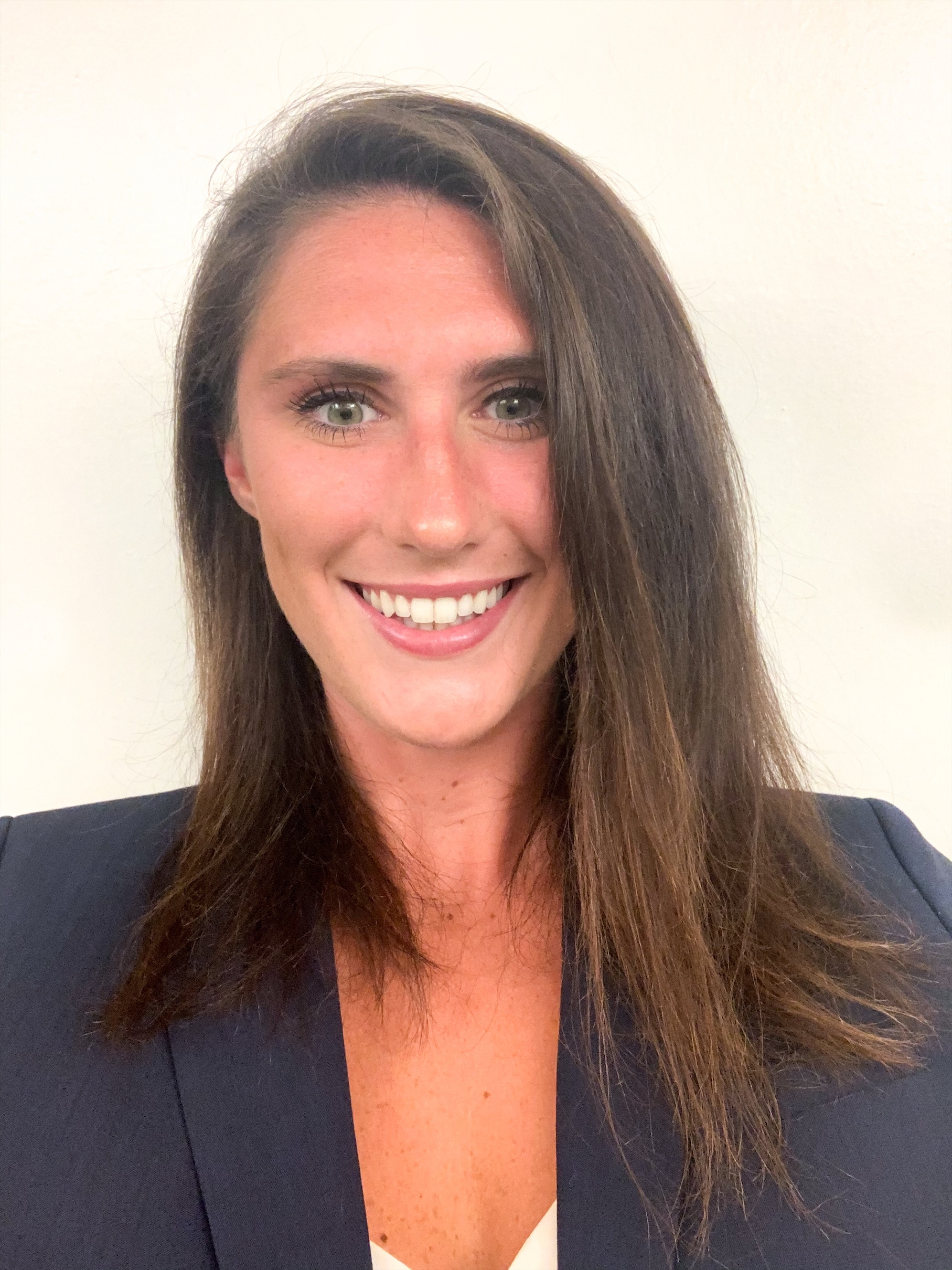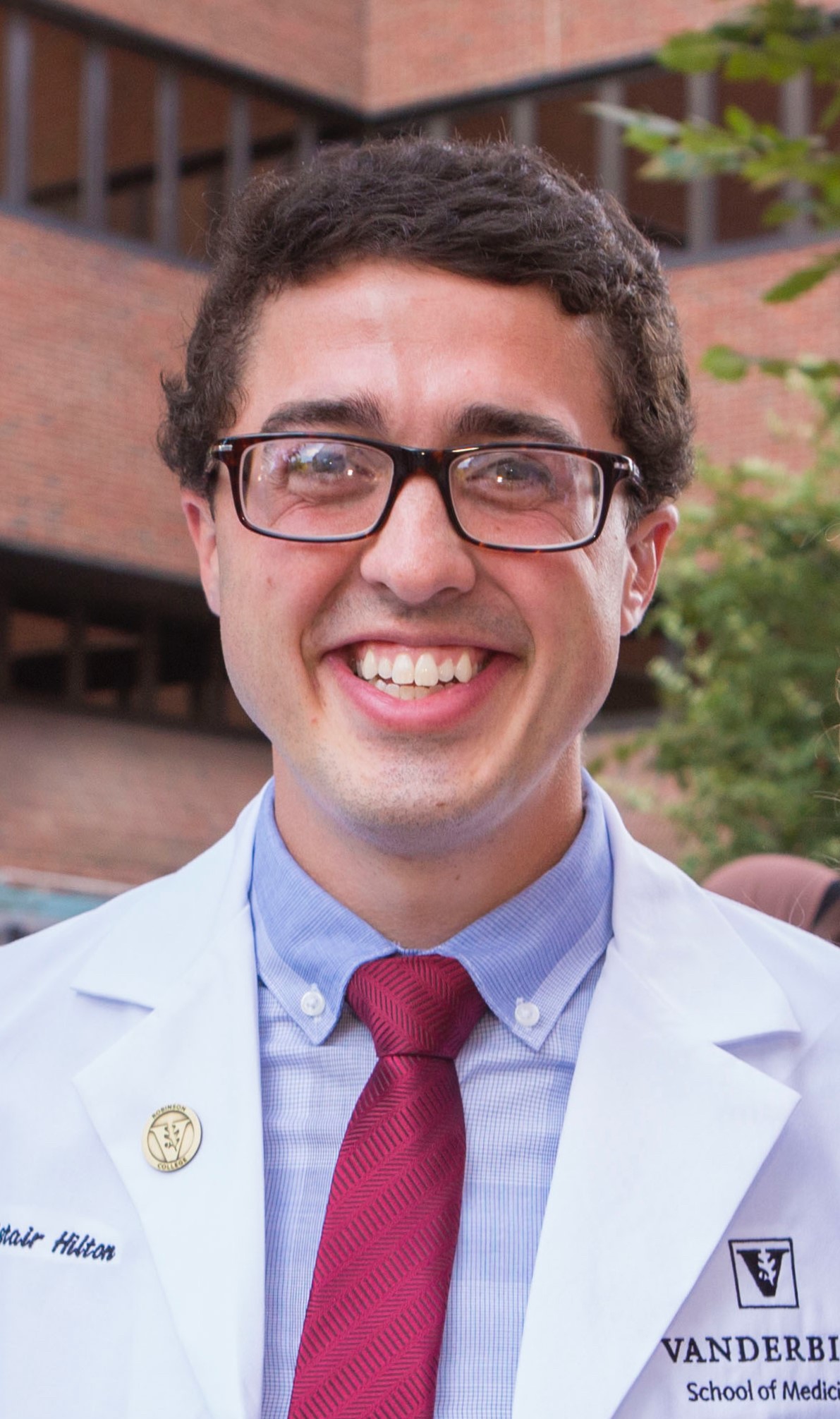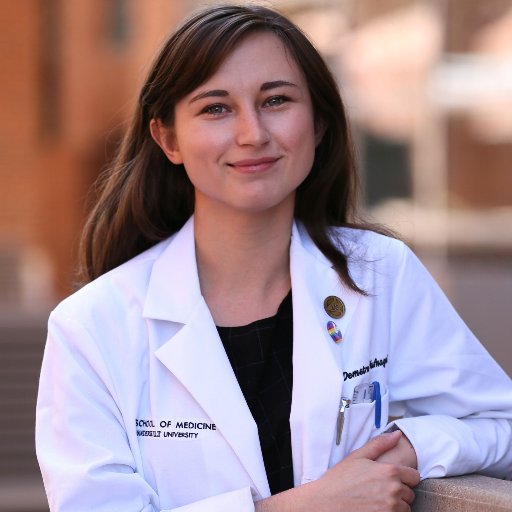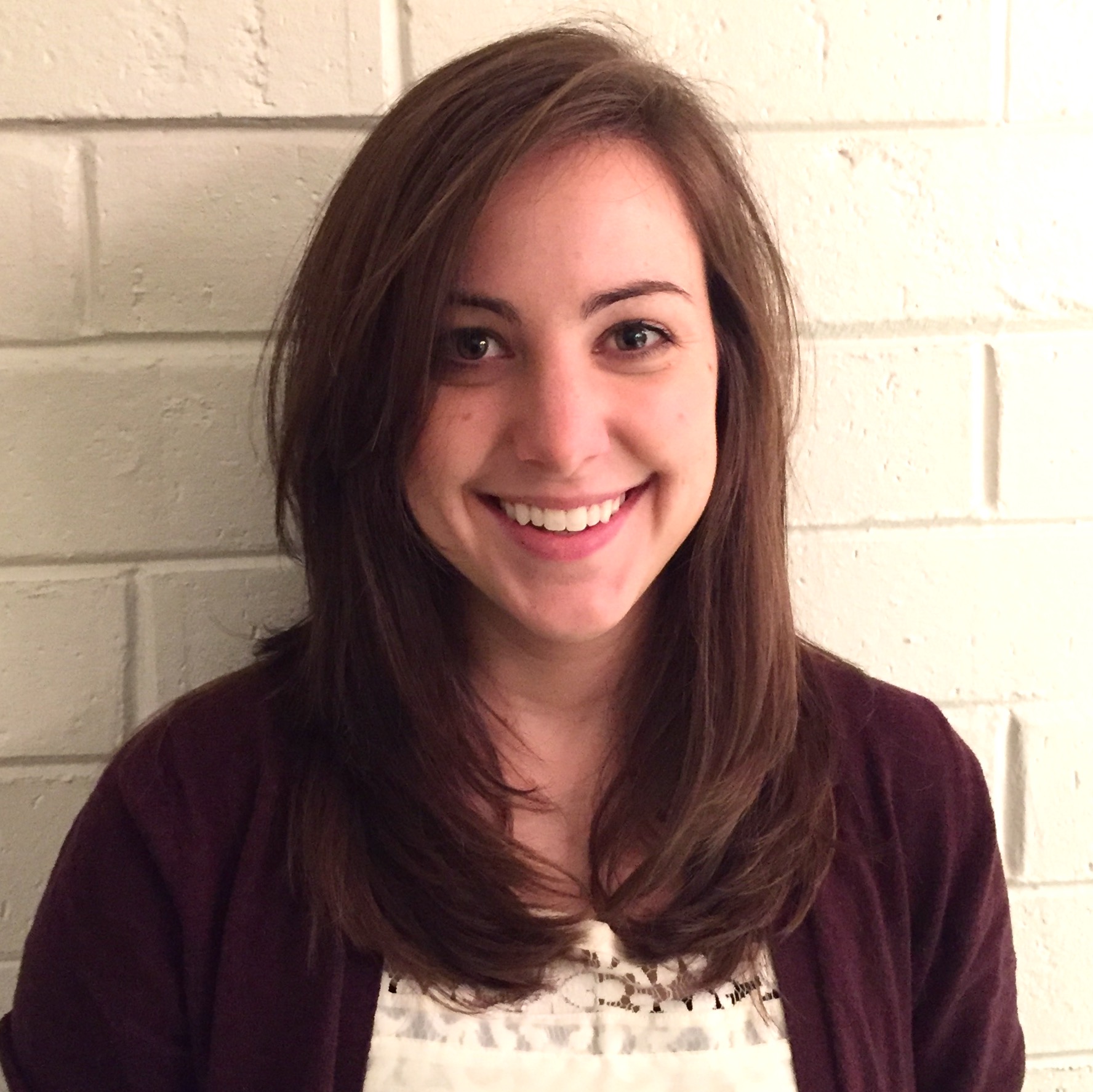Meet our current SCRIPS Medical Student Scholars:
Elizabeth (Lizzie) Simonds (2024 Scholar)
Primary Research Mentor: Matthew Bacchetta, MD, MBA
About Lizzie:
Research Focus:
SCRIPS Medical Student Scholar Alumni:
Katherine (Kate) Hajdu (2023 Scholar)
Primary Research Mentors: Jonathan Schoenecker, MD, PhD & Stephanie Moore-Lotridge, PhD, Department of Orthopaedic Surgery
About Kate: Kate is a rising 4th year medical student at Vanderbilt University School of Medicine who is considering matriculating into the Medical Scientist Training Program. She grew up in Dallas, TX before attending Texas A&M University where she got a BS in Biomedical Engineering. As an undergraduate, she played on the Texas A&M NCAA Division 1 Women’s soccer team, worked on developing several different engineering projects, spent a summer as a quality engineer intern at Stryker, and was an American Heart Association Research fellow. Before starting medical school, she worked at Texas Scottish Rite Hospital for Children as a biomedical engineering intern. She will be applying into Orthopedics and is excited for this opportunity to further her research in bone biology and the acute phase response following trauma.
Research Focus: Hip dysplasia is a condition involving developmental issues in either the acetabulum, proximal femur, or both. The origins of acetabular dysplasia can be attributed to disruptions in the ossification of the acetabular epiphyses, the triradiate, or the proximal femoral epiphysis. Mouse models have emerged as invaluable tools for studying developmental bone biology due to their unique biological advantages. Researchers have successfully demonstrated the normal development of the proximal femur in mice. While the ossification process of the proximal femur in mice is distinctly different from that in humans, as it fails to develop a secondary ossification center, it has proven useful for studying various processes such as physeal resorption, chondrocyte-mediated mineralization, and developmental diseases of the physis and epiphysis. Despite these advancements, knowledge gaps persist in understanding the normal development of the mouse acetabulum. Specifically, it remains unclear whether the mouse acetabulum develops in a manner biologically similar to the human acetabulum. In humans, there are three acetabular epiphyses that form the lateral rim of the acetabulum. These ossification centers appear when blood vessels invade the cartilaginous anlage creating a center of ossification. There is also a bipolar physis termed the triradiate cartilage medially within the acetabulum that contributes to acetabular growth. The lateral acetabular epiphyses and triradiate ossify and fuse to complete osseous development during puberty. Understanding whether the mouse acetabulum undergoes a similar pattern of development and ossification can significantly contribute to determining the appropriate timing for experimental interventions and assessments. Furthermore, comprehensive hip modeling requires a thorough consideration of acetabular development, as the development of the proximal femur and acetabulum are closely linked biomechanically. Therefore, the focus of my research will be to fully characterize murine acetabular development and compare it with human acetabular development. I aim to bridge the knowledge gap in murine acetabular development, opening new avenues for studying hip development and pathologies using a mouse model. 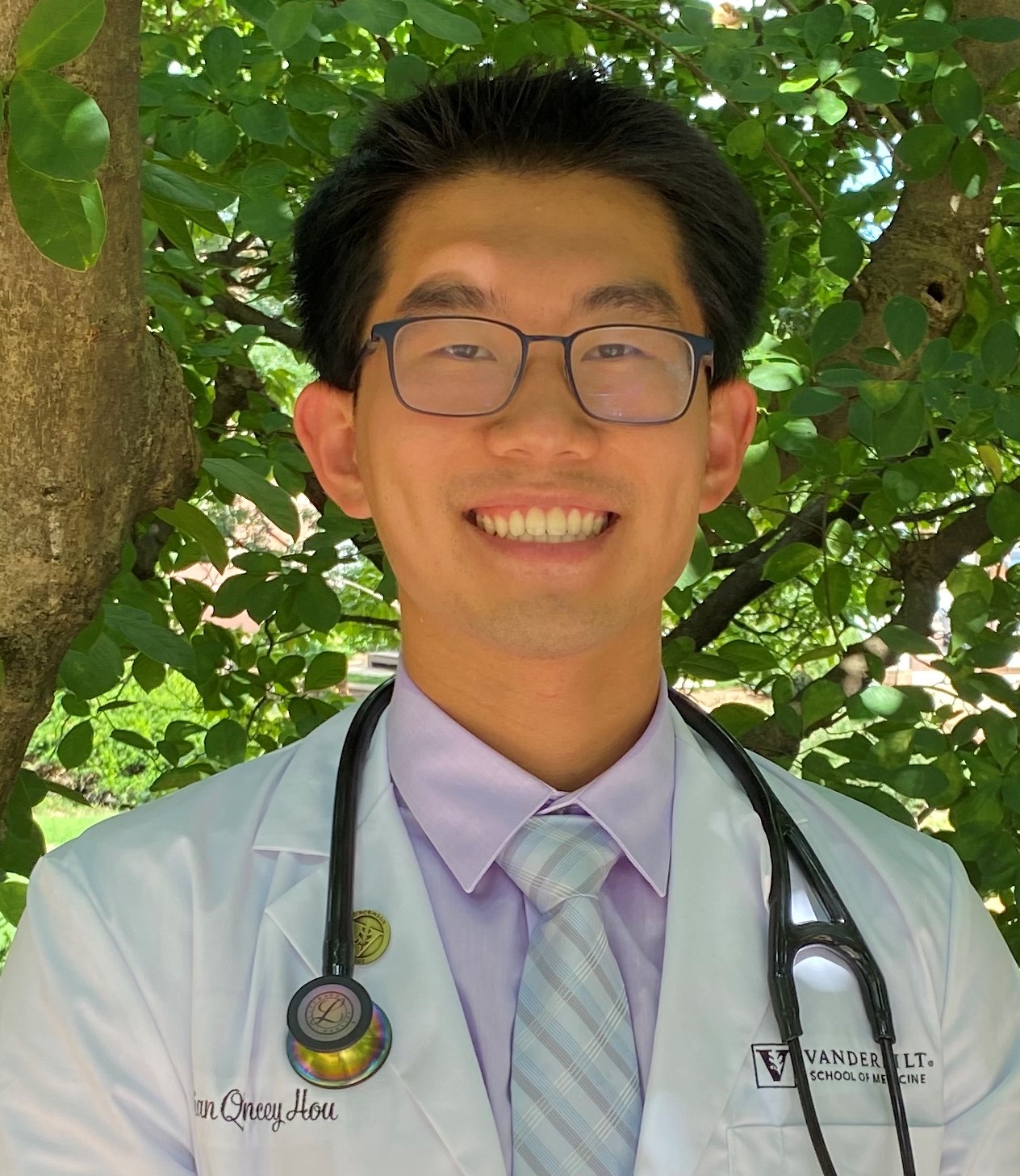
Brian Hou (2023 Scholar)
Primary Research Mentors: Jonathan Schoenecker, MD, PhD & Stephanie Moore-Lotridge, PhD, Department of Orthopaedic Surgery
About Brian: Brian is a rising 4th year medical student at Vanderbilt University School of Medicine. He grew up in Central Jersey in a small town close to Princeton. He graduated from Vanderbilt University in 2020 with a BA in Neuroscience and Medicine, Health, & Society. As an undergraduate, he worked in several research labs during the school years and in summers, ranging from studying multisensory perceptual training under Dr. Mark Wallace to pharmacologics for Parkinson’s disease at the NIH to mitochondrial function after bariatric surgery at Brigham & Women’s Hospital. During medical school, he solidified his desire to go into Orthopedic Surgery and is looking forward to a year of learning and contributing to the rapidly growing field.
Research Focus: After an injury, the acute-phase response (APR) activates the coagulation and inflammatory systems to restore hemostasis and prevent infections. However, severe injuries can lead to hyperfibrinolysis, where excessive plasmin activity destroys initial fibrin matrices, increasing the risk of bleeding and infections. To address this issue, the coagulation and inflammatory systems upregulate fibrin production and generate inflammatory damage matrices, such as DNA Neutrophil Extracellular Traps (NETS), to form a resilient damage matrix resistant to hyperfibrinolysis. While effective at containing the injury, systemic deposition of these upscaled damage matrices can cause organ dysfunction and chronic inflammation, impacting patient outcomes. To improve care for severely injured patients and minimize the need for damage matrix upscaling, it is crucial to study the molecular drivers of early hyperfibrinolysis. This study focuses on investigating the role of adrenaline, a hormone released following severe injury, as a potential key modulator of hyperfibrinolysis. Identifying such molecular pathways and pharmacological interventions could ultimately reduce morbidity and mortality in patients with severe injuries.

Rachel Goodman, MBA (2022 Scholar)
Primary Research Mentor: Douglas Johnson, MD, MSCI, Div. of Hematology/Oncology (Dept. of Medicine)
About Rachel: Rachel is a rising 4th year medical student at Vanderbilt University School of Medicine. She grew up in Boca Raton, FL before attending Vanderbilt University where she graduated with a BA in Neuroscience. As an undergraduate, she worked in a neuroscience lab studying binocular rivalry dynamics. Before starting medical school, she received an MBA in Entrepreneurial Management from Lynn University. She will be applying into Dermatology and is excited for this opportunity to further her research experience and contribute to the field of Dermato-oncology.
Research Focus: Despite immunotherapy’s success in improving survival in cancer patients, therapeutic immune checkpoint inhibition only produces clinical responses in a subset of patients with advanced malignancy due to intrinsic and acquired resistance. MHC-II expression in tumors has been shown to serve as a potential biomarker of immunotherapy response and resistance. The objective of this project is to validate MHC-II as a biomarker of immunotherapy efficacy, specifically in patients treated with adjuvant therapy for melanoma. A secondary aim is to correlate MHC-II expression with other proteomic and immunologic markers. These objectives aim to assist in identifying patients who will respond best to immunotherapy and developing novel strategies to evade immunotherapy resistance.
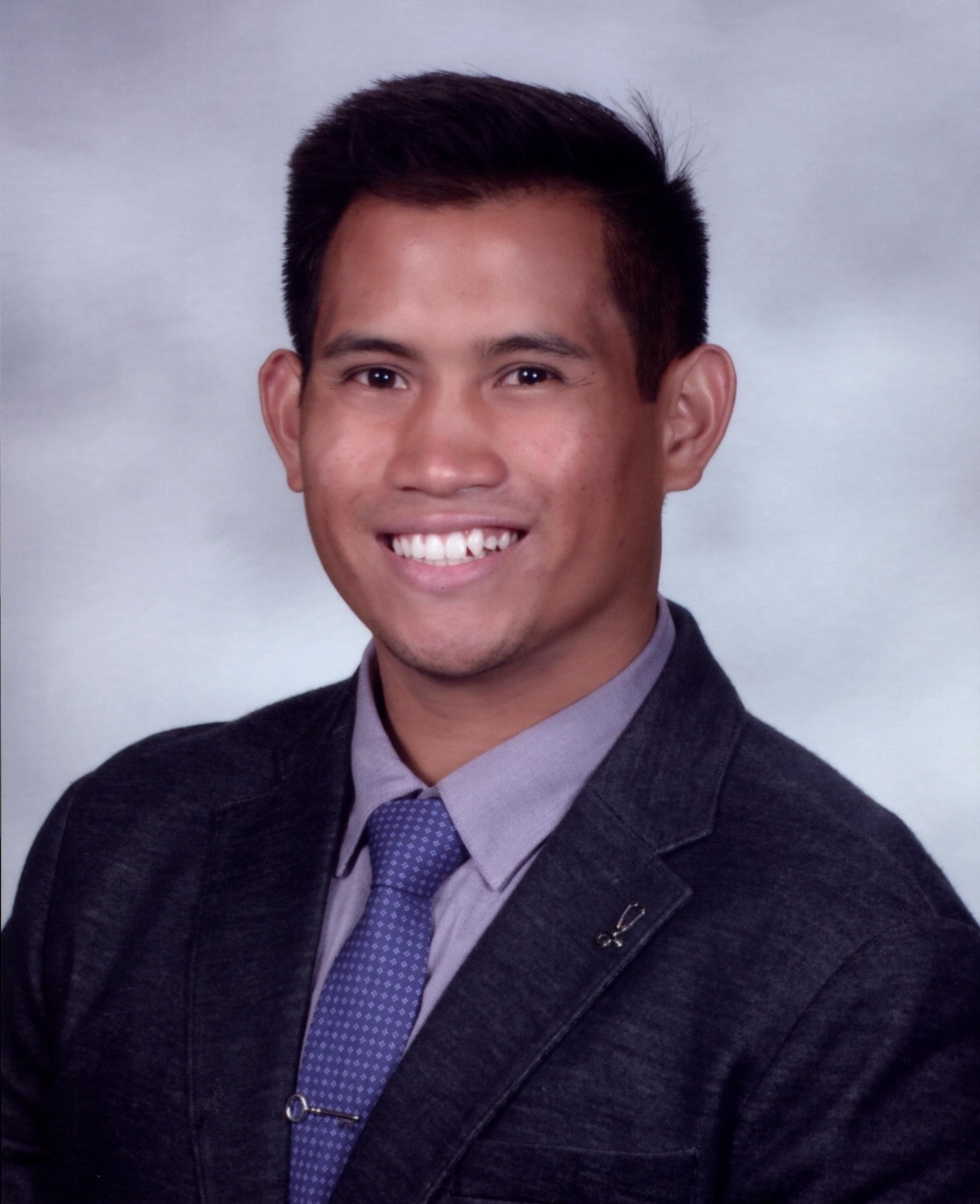
Edward Talatala (2022 Scholar)
Primary Research Mentor: Alexander Gelbard, MD, Dept. of Otolaryngology - Head and Neck Surgery
About Edward: Edward is a rising 4th year medical student at Meharry Medical College School of Medicine. He grew up in Dallas, TX before attending Loyola Marymount University in Los Angeles, CA where he graduated with a BS in Biology. As an undergraduate, his began his research career environmental sciences in the Santa Monica Bay. During medical school, he transitioned his research to the field of Otolaryngology, solidifying his decision to continue research in this field through SCRIPS. Edward is pursuing a career in Otolaryngology with the goal of becoming a surgeon-scientist.
Research Focus: Idiopathic subglottic stenosis (iSGS) is an unexplained progressive obstruction of the upper airway that occurs almost exclusively in adult, perimenopausal, Caucasian women. The disease is characterized by mucosal inflammation and localized fibrosis resulting in life-threatening upper airway blockage. Because iSGS disproportionately affects women, female sex hormones (estrogen and progesterone) are hypothesized to play a role in both the observed epithelial barrier dysfunction and pathologic fibroblast activation. Prior reports have demonstrated expression of estrogen receptors and progesterone receptor within the mucosal subglottic scar. Our central hypothesis is that estrogen mediates epithelial barrier dysfunction and pathologic fibroblast activation via estrogen receptor signaling and activation.
Alistair Hilton (2021 Scholar)
Primary Research Mentor: Dr. David P. Bichell, Div. of Pediatric Cardiac Surgery
About Alistair: Alistair is a rising 4th year medical student at Vanderbilt University School of Medicine. He grew up in Idaho Falls, Idaho before attending Brigham Young University in Utah where he graduated with a BA in Asian Studies. While there he worked in the Translational Anatomy of Degenerative Diseases and Developmental Disorders Lab studying the structural innervation of cardiac tissue by myelinated nerve fibers utilizing whole organ staining techniques. After graduating, he moved to Nashville to begin his medical studies. He will be applying into Cardiothoracic Surgery with a goal towards pursuing a career in Pediatric & Congenital Cardiac Surgery. Plans after SCRIPS: Alistair matched into Surgery-Preliminary at Vanderbilt University Medical Center in 2023.
Research Focus: Cardiopulmonary bypass enables life-saving congenital surgical techniques but is not without its share of risks and complications. With Dr. Bichell and in partnership with Dr. Heidi Smith in the Department of Anesthesiology we are studying the effect of nitric oxide introduction into the bypass circuit on acute neurologic insult and acute kidney injury, utilizing circulating biomarkers of brain and kidney injury. We hypothesize that addition of nitric oxide will reduce biomarker levels and provide a protective effect against brain and kidney injury.
Melissa (Missy) Kimlinger (2021 Scholar)
Primary Research Mentor: Frederic T. (Josh) Billings, IV, MD, MSc, Dept. of Anesthesiology
About Missy: Missy is a rising 4th year medical student at Vanderbilt University School of Medicine. She grew up in southern Illinois before attending college at Saint Louis University. As an undergraduate, she worked in the bioanalytical chemistry lab of Dr. Scott Martin and obtained a BS in Biochemistry and Minor in Philosophy. Missy will be applying to Anesthesiology and hopes to pursue Cardiac Anesthesia. Plans after SCRIPS: Missy matched into Anesthesiology at Massachusetts General Hospital in 2023.
Research Focus: Acute kidney injury (AKI) affects 10% of patients following major surgery and is associated with extra-renal organ injury, increased hospital length of stay, development of chronic kidney disease, dialysis, and death. Perioperative ischemia and reperfusion injury is common and contributes to AKI development. We hypothesize that the amount of oxygen delivery during renal ischemia and reperfusion affects oxidative damage and reactive oxygen species (ROS) production in the kidney, as well as systemic inflammation and injury. We will be testing this hypothesis in a murine model of ischemia and reperfusion injury, which will give insight to oxygen physiology during surgery and will hopefully contribute to improved oxygen administration strategies during human surgery.
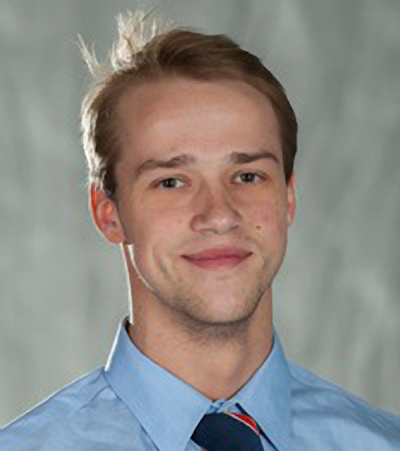
Colin White-Dzuro (2020 Scholar)
Primary Research Mentor: Dr. Wesley P. Thayer, Dept. of Plastic Surgery
About Colin: Colin is a rising 4th year medical student at Vanderbilt University School of Medicine. He was born and raised in Toronto, Ontario, Canada, and went to Vassar College in upstate New York where he graduated with a BA in Biochemistry. After graduating, he moved back home to Toronto and was awarded the Ted Rogers Centre for Heart Research Studentship to study the molecular basis of cardiovascular disease under Dr. Mansoor Husain at University of Toronto. He will be applying into Plastic Surgery with the goal of pursuing a career in Craniomaxillofacial Surgery.
Research Focus: Burn injury remains a serious cause of morbidity and mortality in the United States. With Dr. Thayer and in conjunction with Dr. Leon Bellan in the Department of Mechanical Engineering, we are studying the use of a microcapillary-embedded hydrogel infused with Infliximab to burns in a murine model. We hypothesize that early application of the gel post-burn will reduce inflammation and prevent the conversion from partial to full thickness burn. Plans after SCRIPS: Colin matched into Plastic Surgery-Integrated at U. Texas Southwestern Medical School in 2022.
Demetra Hufnagel (2019 Scholar)
Primary Research Mentor: Dr. Alicia Beeghly-Fadiel, Dept. of Medicine, Epidemiology
About Demetra: Demetra is rising 4th year medical student at Vanderbilt University School of Medicine. She grew up in Los Angeles, California and moved to New Haven, Connecticut to attend Yale, where she majored in Molecular, Cellular, and Developmental Biology with a concentration in Biotechnology. After graduating, she worked as a research associate at Yale School of Medicine studying endometrial stem cells and their role in both regenerative medicine and disease pathogenesis. She will be applying into Obstetrics and Gynecology, with a goal towards pursuing Gynecologic Oncology. She is very excited to have the opportunity to be a SCRIPS medical student scholar! Plans after SCRIPS: Demetra matched into Obstetrics & Gynecology at UCLA in 2021.
Research Focus: NF-kB Signaling in the Tumor Epithelium and Microenvironment and Relationship to Psychosocial Stress and Ovarian Cancer Prognosis
Alexandra (Allie) Williams (2019 Scholar)
Primary Research Mentors: Yan Ru Su, MD and Prince Kannankeril MD, MSci
About Allie: Allie is a rising 4th year medical student at Vanderbilt University School of Medicine. She grew up in Peoria, AZ and Boxford, MA, and went to Washington University in St. Louis for undergrad. She then moved to Nashville prior to starting medical school, where she worked as a research assistant at Vanderbilt in a lab studying Hypertrophic Cardiomyopathy (HCM). She aspires to become a pediatric cardiologist, and is excited about this opportunity to further her research background and contribute to the field of pediatric cardiology. Plans after SCRIPS: Allie matched into Pediatrics at Vanderbilt University Medical Center in 2021.
Research Focus: There are three to four thousand sudden unexpected infant deaths (SUID) in the U.S. each year, with about 75% of cases remaining unexplained after autopsy and extensive post-mortem investigation. It is known that up to 20% of autopsy-negative SIDS (subset of SUID) cases have underlying cardiac channelopathy- or cardiomyopathy-causing mutations, and we aim to identify and characterize cardiac genetic and molecular mechanisms that may place infants at an increased risk for SUID.
